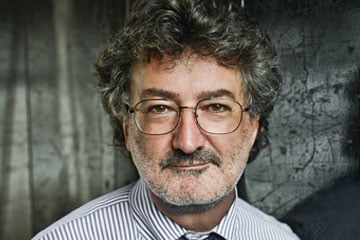
A heated debate at the Law Society of Ontario on Thursday will decide how the province’s lawyers are required to approach the principles of equity, diversity and inclusion.

A heated debate at the Law Society of Ontario on Thursday will decide how the province’s lawyers are required to approach the principles of equity, diversity and inclusion.
The statement-of-principles requirement — which says lawyers and paralegals licensed by the law society must pledge their commitment to diversity and inclusion in writing — has been a divisive issue for the regulator’s board. Opponents have said the requirement constitutes compelled speech, while supporters said it is one of many steps needed to show commitment to improving the profession’s diversity.
A key vote on the requirement could come on Thursday afternoon.
The statement-of-principles requirement, initially approved by previous bencher board members in 2016, came to the fore again this spring amid elections for a new set of benchers.
Opponents of the requirement won 22 of the 40 lawyer seats, unseating several incumbents, although statement-of-principles supporter Malcolm Mercer won a second term as leader of the LSO on Thursday.
“To claim that everyone associated with the Law Society of Ontario is a racist and in need of re-education is appalling,” said sole practitioner and bencher Cheryl Lean, who opposed the statement-of-principles requirement and was one of the top candidates in the spring LSO election.
Several motions and a point of order were debated by benchers on Thursday in a marathon meeting before a packed audience.
In addition to a motion suggesting the statement-of-principles requirement be completely repealed, benchers Joseph Groia and Teresa Donnelly proposed the “mandatory” statement be replaced with a suggestion that a statement of principles is “encouraged” by the law society.
Some statement-of-principles supporters, such as bencher Isfahan Merali, said they could not in good conscience support anything other than maintaining the status quo. Bencher Atrisha Lewis, a senior associate at McCarthy Tétrault, said she supports the statement of principles, but she also said she would support Groia’s motion to make a statement of principles optional, given how she “knew the votes would shake out.”
"To those who think this debate is about freedom of expression, don't be fooled. This is about the denial of racism," she said.
Groia said the mandate of statement-of-principles opponents was to get rid of the compulsory nature of the statement of principles, not to undo the previous work by benchers on equality, diversity and inclusion. Groia told benchers it was time to look forward at what the LSO should do make the profession "truly colour- and gender-blind." He noted the “blunt, harsh” message to the profession and that it was not about “thought control.”
But statement-of-principles opponent Murray Klippenstein, who previously ran his own firm, said that when he first read about the statement of principles, he felt it was the first time he didn't have control over his own thoughts. Klippenstein described a feeling of the hands and the fingers of the law society directing his brain to type on his keyboard. He called the proposal that the law society record which lawyers make a statement of principles a kind of “political registry.”
“People may be looking for a compromise, but this is not a good compromise,” Klippenstein said. “I have spent pretty much all of my career taking the point of view of the disadvantaged and fighting for them. We as a profession must hear those concerns and study them — not in this way. . . . This is a mess.”
A point of order was also raised as to whether benchers Klippenstein and Ryan Alford had a conflict of interest with the vote on the statement-of-principles requirement, amid a parallel court challenge. Last year, in the decision Alford v. The Law Society of Upper Canada, 2018 ONSC 4269, Alford was ordered to pay almost $10,000 in costs to the Law Society of Ontario.
Bencher Julian Falconer, a lawyer at Falconers LLP, compared the situation to the law society offering to buy a building owned by a bencher, saying it would be clear that the bencher should recuse themselves.
"People need to know how personal stakes work,” said Falconer.
Klippenstein, who is also involved in the action, said that, when he took his position against the statement of principles requirement, his career was over and he could possibly face "financial disaster" and bankruptcy.
“We as lawyers play our role when we as a group — independently of the powers that can be, independently of the public opinion — . . . we do what we think is right,” he said. “The public watching this may see a group of lawyers fighting, [but another way to see it] is a group of lawyers doing what’s right.”
Mercer said he would not disqualify Alford or Klippenstein from participating in the statement-of-principles debate, saying that a potential costs order was an ephemeral risk and a reasonable person would not recognize it as a conflict. Benchers appealed the decision, calling for the issue to be debated by Convocation, but the majority of benchers voted to uphold Mercer’s decision.
Alford told Convocation that his lawsuit was public interest litigation and that the suggestion of the conflict of interest had not been raised properly before Convocation.
"If that puts me out of alignment with the interests of not only the profession but the public . . . I fail to see it, and I need a much better analysis of case law than this,” Alford said of the point of order, which cited several cases. "This is what poisons debate at Convocation.”